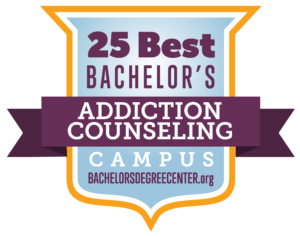Perhaps it’s a parent, or a sibling, or a friend of yours… or your own experiences that sparked your interest in helping those who struggle with substance use disorders. Substance use disorders are complex and fascinating to study, with new research emerging regularly on how best to assist people and their families in overcoming their misuse of alcohol and other drugs. By majoring in substance abuse counseling at USF, you will become part of the cutting edge of specialists learning how to cure the damaging substance use disorders.
 Currently the only B.A. program in substance abuse counseling in the Chicago area, the University of St. Francis Substance Abuse Counseling program provides an opportunity for many students with a high school diploma or an associate degree in this field to obtain a B.A. degree, while meeting a strong demand for substance abuse counselors in a dynamic market.
Currently the only B.A. program in substance abuse counseling in the Chicago area, the University of St. Francis Substance Abuse Counseling program provides an opportunity for many students with a high school diploma or an associate degree in this field to obtain a B.A. degree, while meeting a strong demand for substance abuse counselors in a dynamic market.
Nationally, the field of substance abuse/addictions counseling is expected to enjoy faster than average job growth (United States Department of Labor, Bureau of Labor Statistics). Thus, the field of substance abuse counseling represents a wise choice for students interested in entering this helping profession.
The University of St. Francis is accredited by the Higher Learning Commission (hlcommission.org), a regional accreditation agency recognized by the U.S. Department of Education.
The Substance Abuse Counseling program is accredited by the Illinois Certification Board (iaodapca.org).
In addition, upon completion of the BA Substance Abuse Counseling degree program and having achieved the CADC credential, the student will have fulfilled the education requirements for the Co-Occurring Substance Use and Mental Health Disorder Professional Level 1 Registration (CODP-1) as credentialed by the Illinois Certification Board.